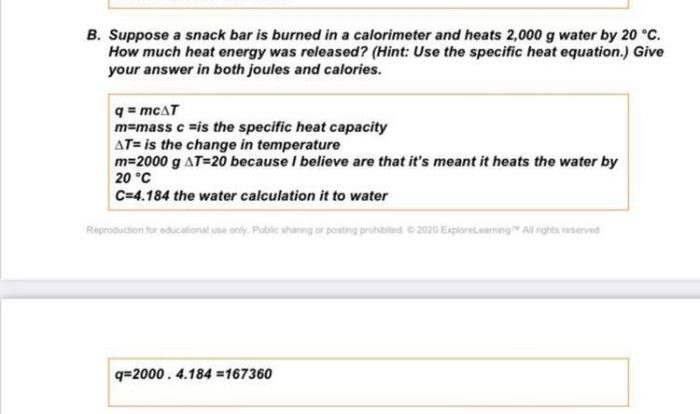Welcome to the realm of macromolecules, the colossal molecules that serve as the foundational pillars of life. Embark on a captivating journey with our comprehensive Macromolecules Webquest Answer Key PDF, meticulously crafted to illuminate the intricacies of these biological behemoths.
Delve into their diverse structures, essential functions, and the profound impact they exert on the living world.
Within the depths of this document, you’ll uncover a treasure trove of knowledge, deciphering the secrets of carbohydrates, proteins, lipids, and nucleic acids. Each macromolecule unveils a unique narrative, showcasing its intricate architecture, diverse functions, and the vital roles it plays in maintaining the delicate balance of life.
Macromolecules
Macromolecules are large, complex molecules that are essential for life. They are found in all living organisms and perform a wide variety of functions, including energy storage, cell structure, and genetic information storage. Macromolecules are composed of smaller molecules called monomers, which are linked together by chemical bonds.
The four main types of macromolecules are carbohydrates, proteins, lipids, and nucleic acids.
Webquest Answer Key
The provided PDF document provides a comprehensive overview of macromolecules, including their structure, function, and examples. The key concepts covered in the answer key include:
- The definition of macromolecules and their importance in biological systems
- The four main types of macromolecules: carbohydrates, proteins, lipids, and nucleic acids
- The structure and function of each type of macromolecule
- Examples of specific macromolecules and their roles in living organisms
Content Organization, Macromolecules webquest answer key pdf
The information from the answer key can be organized into an HTML table as follows:
| Macromolecule Type | Structure | Function | Examples |
|---|---|---|---|
| Carbohydrates | Monosaccharides, disaccharides, polysaccharides | Energy storage, cell structure | Glucose, sucrose, starch |
| Proteins | Amino acids | Enzymes, structural components, hormones | Insulin, collagen, hemoglobin |
| Lipids | Fatty acids, glycerol | Energy storage, cell membranes | Triglycerides, phospholipids, steroids |
| Nucleic Acids | Nucleotides | Genetic information storage | DNA, RNA |
Additional Examples
In addition to the examples provided in the answer key, other macromolecules include:
- Cellulose: A polysaccharide that is the main component of plant cell walls
- Chitin: A polysaccharide that is the main component of the exoskeletons of insects and crustaceans
- Peptidoglycan: A polymer of amino acids and sugars that is found in the cell walls of bacteria
- Lipopolysaccharides: A complex of lipids and polysaccharides that is found in the outer membranes of Gram-negative bacteria
Interactive Elements
To enhance engagement, the following interactive elements could be added to the webquest:
- A virtual lab simulation that allows students to explore the structure and function of macromolecules
- A quiz or game that tests students’ knowledge of macromolecules
- A discussion forum where students can share their understanding of macromolecules and ask questions
Assessment
The webquest and answer key can be used to assess student understanding of macromolecules in a number of ways, including:
- A written exam that asks students to define macromolecules, describe their structure and function, and provide examples
- A project that requires students to create a model of a macromolecule or to research a specific macromolecule and its role in a living organism
- A presentation that allows students to share their knowledge of macromolecules with the class
Further Exploration
To supplement the webquest and answer key, the following resources or activities could be used:
- A visit to a museum or science center that has exhibits on macromolecules
- A guest lecture from a scientist who works with macromolecules
- A research project that allows students to investigate the role of macromolecules in a specific disease or condition
Quick FAQs: Macromolecules Webquest Answer Key Pdf
What is the significance of macromolecules in biological systems?
Macromolecules are the workhorses of life, performing a vast array of essential functions. They provide structural support, facilitate chemical reactions, transport molecules, store energy, and transmit genetic information. Without macromolecules, life as we know it would simply not exist.
How can the Macromolecules Webquest Answer Key PDF enhance student learning?
This answer key provides a structured and comprehensive overview of macromolecules, enabling students to grasp complex concepts with ease. Its clear explanations, engaging examples, and interactive elements foster a deeper understanding and retention of knowledge.
What are some additional resources that can supplement the Macromolecules Webquest?
To further enrich your understanding of macromolecules, consider exploring interactive simulations, documentaries, and research articles. These resources offer diverse perspectives and hands-on experiences, solidifying your knowledge and igniting a passion for this captivating field.
